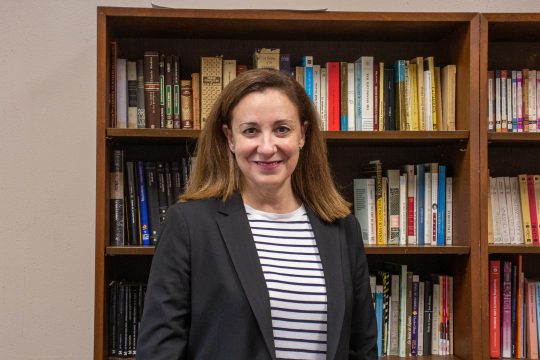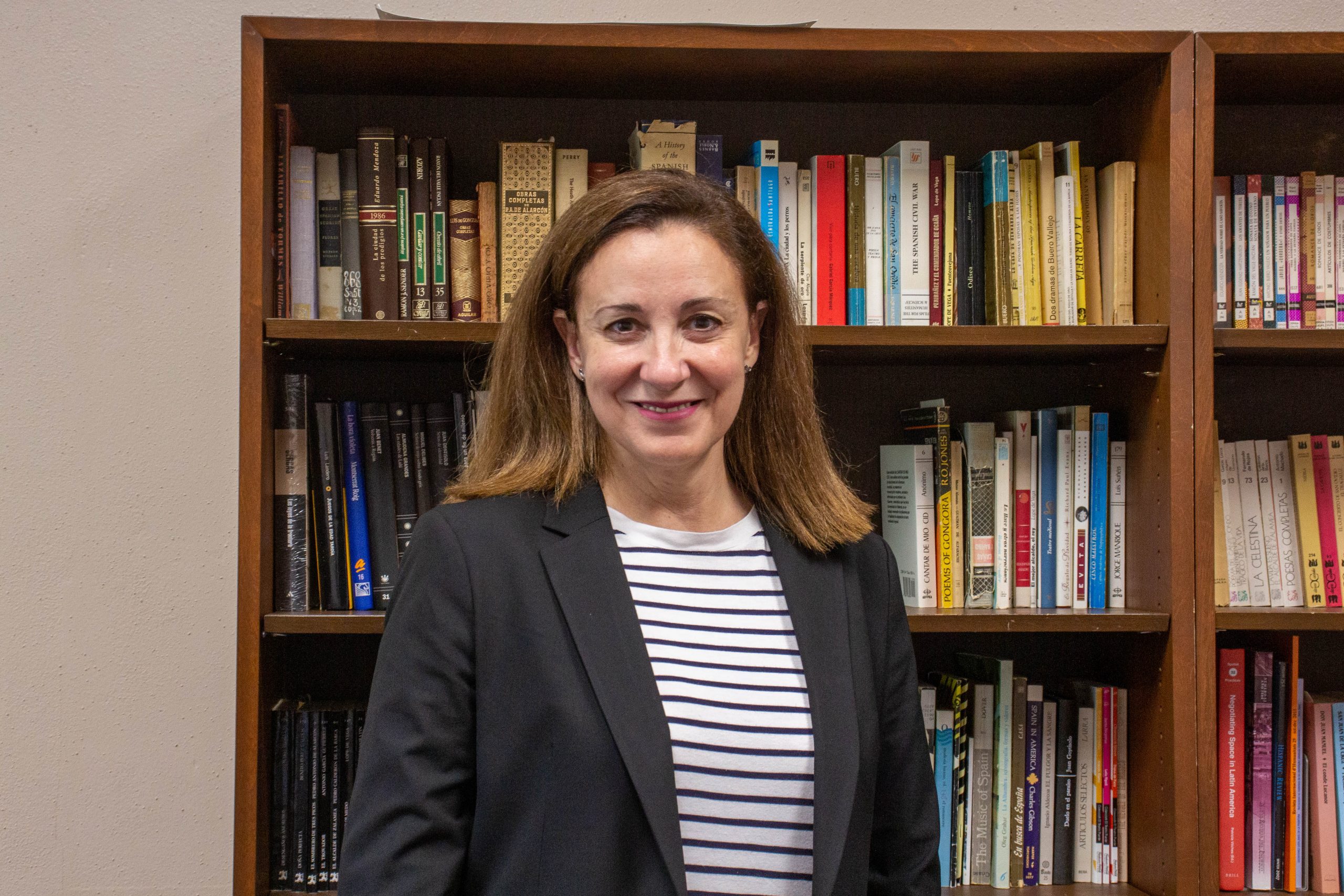Lawrence’s Professor of Spanish Rosa Tapia has been appointed by the College Board as the National Chief Academic Consultant, or “chief reader,” for the AP Spanish Language and Culture Exam, as announced in President Laurie Carter’s “September Campus Updates” email. This comes after sixteen years as an AP reader, a position tasked with grading AP exams, the last six of which she served as an assistant to the previous chief reader.
Describing her new role, Tapia explains that she is the supervisor for all graders of the AP Spanish exam, in charge of setting up trainings for evaluators and developing sample questions and answers as models for scoring.
“All of this is in service of ensuring that over 1,000 different evaluators grade as if they were the same person,” Tapia adds.
Tapia has years of experience in not only grading but also developing the AP Spanish exam with the Exam Development Committee, a group of four high school AP teachers and four college professors. Questions and prompts are formulated to assess students’ real-world capabilities as well as a standardized test can, and Tapia feels that the College Board has had success in this.

The exam is long and reflects the standard format for all AP language exams. There are multiple choice questions that require students to respond to various stimuli – graphs, pictures, audio clips, articles – and a free response section with two writing prompts, one formal and one informal, and two speaking prompts, one a simulated conversation and the other a cultural presentation. Tapia remembers that the 2020 exam was modified due to COVID-19 and included only the speaking portion, as performance in that section has shown the highest correlation with overall score.
While the exam returned to its usual format the following year, Tapia says it is constantly evolving. For example, the cultural presentation question used to be another stimulus-response prompt but is now a more open-ended invitation to compare the student’s home community with another, Spanish-speaking community. This change came after feedback from AP high school teachers shared all the cultural content they covered in class that was not addressed on the exam.
According to Tapia, her experience with the AP exam is deeply intertwined with that of her own classroom. Developing the AP exam and collaborating with educators from across the country has informed her own teaching and ability to smoothly integrate students coming from high school courses. Designing diverse stimulus questions for the College Board allows her to do the same in her classroom, and to help students understand her expectations and why she has them.
From her experience having taught students who have taken the exam, Tapia commented that a student’s score is a reliable indicator to her of what their skills are. Students who score a four or five can communicate fluently about topics related to art, global challenges, identities and communities, and receive credit equivalent to Lawrence’s Spanish 202 course. Armed with the information of an AP score, Tapia knows the level of communication a student possesses and what she can do for them through her teaching.
As Chief Academic Consultant, Tapia looks forward to pursuing many of her goals as an educator from a new position. She wants to continue to recruit more educators from across the country to participate in the AP program, and especially to participate in the exam reading to see how fair and consistent the evaluation is. She hopes that this will encourage more educators to bring the AP curriculum to their classrooms, increasing course accessibility to more students.
“A lot of people have different opinions about it, how fair it is for different students, but I think that it’s important to be inside of something to be able to make change happen,” Tapia stated, “to make sure that the process is inclusive, that the exam is fair, and that more students benefit from it.”

